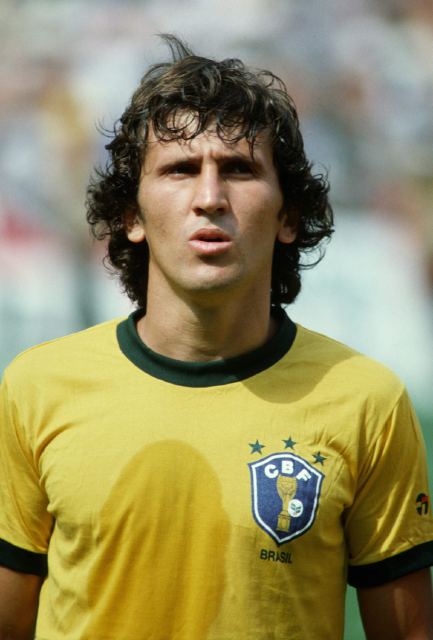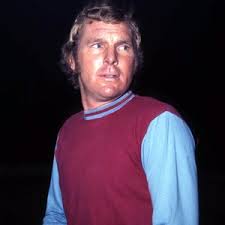62. Zico
Zico, born Artur Antunes Coimbra at Rio in 1953, was the youngest of five footballing brothers. He made his league debut for Flamengo in 1973 and his international debut in 1976, against Uruguay, scoring with one dead-ball shots for which he became famous. Zico netted over 100 goals in his first two seasons and was South American Player Of The Year in 1977 (and in 1981 and 1982).
In the 1978 World Cup he suffered niggling injuries and was unhappy with coach Claudio Coutinho's defensive game. In 1982 however, Brazil returned to the attacking style which suited Zico's change of pace, body-swerves and dynamic shooting. His hat-trick against Bolivia clinched a place in the 1982 finals and in Spain his four goals, including the equalizer against Scotland, took his total for Brazil past 50. In 1983 after 650 goals and four Brazillian championship medals, he made a £2,500,000 move to Udinese, returning to Flamengo in the summer of 1985.
He played in three games in the 1986 World Cup, all as a substitute. His last match was the quarter-final against France when Brazillian fans chanted for him. Alas, minutes later he missed a penalty. It was a sad end for one of Brazil's most popular players of all time. After 1047 senior games, including 71 for Brazil, he eventually retired in 1990 and was appointed his country's Sports Minister.
Zico came out of retirement in 1991 to play in Japan for Sumitomo Metals and Kashima Antlers, the latter appointing him manager in 1999.
He went on to manage the Japanese National team from 2002 to 2006 before returning to club management with Turkish club Fenerbahçe and later was linked to take over from Kevin Keegan at Newcastle United before signing with the Uzbekistan club Bunyodkor.
More recently, Zico was appointed manager of CSKA Moscow in 2009 before being replaced by Juande Ramos. His most recent job was with Greek Champions Olympiacos where he signed a two-year contract on 16th September 2009, replacing the sacked Temuri Ketsbaia.
Legendary Football Players - Zico


Search My Football Facts & Stats
Web site designed & hosted by Paul Yarden © 2013 at Homestead™